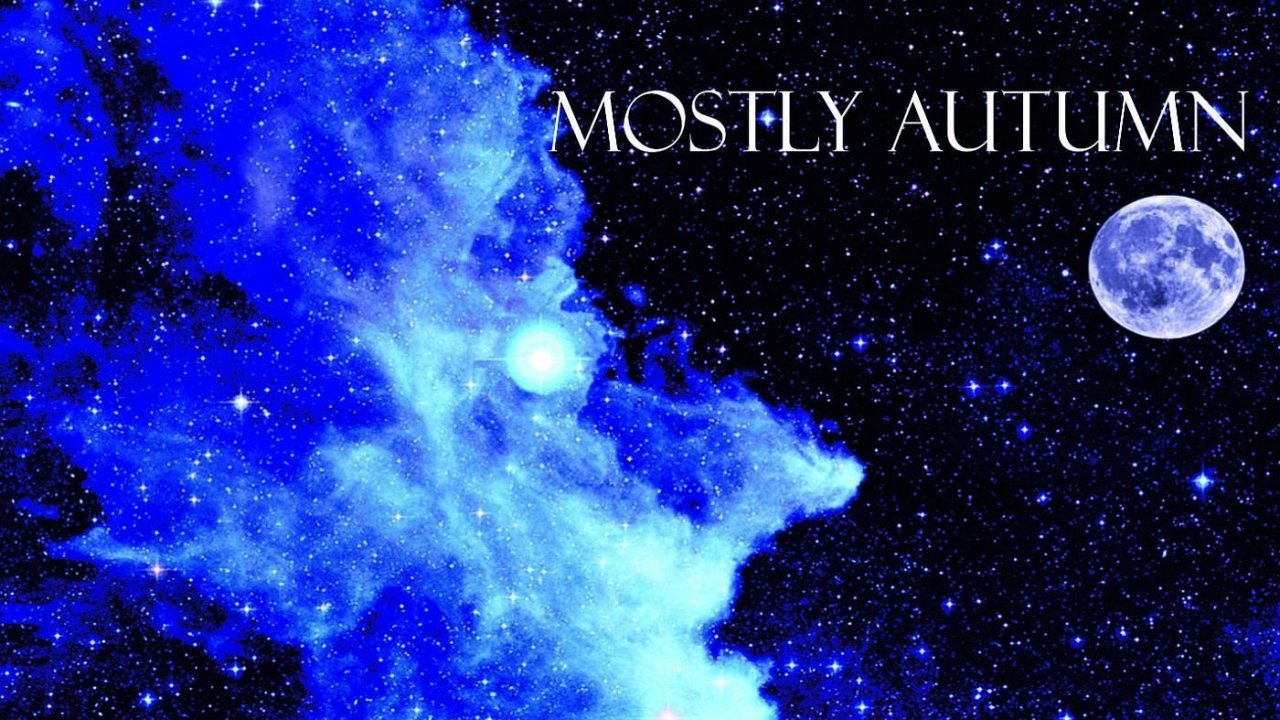Grief can take years to work through the system. With The Ghost Moon Orchestra, Mostly Autumn show they are truly moving on. Indeed it represents the moment Mostly Autumn let go of long-time vocalist Heather Findlay’s ghost. This is music unafraid of spectres and what lurks in the dark. If it has moments of spooky wonder and nursery-rhyme creepiness, it is also unexpectedly earthy. This new incarnation of Mostly Autumn has not only remembered how to rock, but even wields some symphonic metal steel.
The extraordinarily clear vocal chords of Livvy Sparnenn are surely at the centre of Mostly Autumn’s band’s move into Nightwish/Within Temptation territory. On opener Unquiet Tears, Sparnenn’s voice is as fresh as a glacial lake and disconcerting as a wild winter storm.
The use of continental metal’s musical flourishes both here and on the equally grandiose title track may alienate some of the faithful. However, Bryan Josh and band’s willingness to evolve not only deserves applause but should widen their fan base. If The Ghost Moon Orchestra represents musical progression there remains a delightful core of intelligently reconfigured Mostly Autumn chops. The Ragged Heart, featuring relaxed vocals from Josh and an elegant flute intro from Anne-Marie Helder, is a song unafraid to smile and be warm. Equally Things That We Notice showcases the effortless harmony work of Sparnenn and Helder.
However, it is the closing tracks, fusing the neo-symphonic with the gutsy, that make the spine shiver. Tennyson Mansion begins, like the theme for a mescaline-flavoured spaghetti western, with echoey country guitar. It retains the feel of vast open spaces but builds to a gravity-defying guitar solo. Josh may be singing ‘I can’t let go’, but this is a band discarding anything that might hold them back.
Bryan Josh may have a significantly limited voice, but at its best it’s as smoky and warm as burning peat, as on closing track Top Of The World, where he duets with Sparnenn in a genuinely moving way. This is music of hope and acceptance handled so carefully that it avoids sentimentality. And as for the extensive guitar break – it’s tempting to label it the mother of all wig-outs.
There are problems with this album – some of the lyrics are awkward, and grubby rocker The Devil And The Orchestra does Josh’s voice few favours – but The Ghost Moon Orchestra shows Mostly Autumn breaking new ground and discovering unexpected jewels. More contemporary and crisper than they have been for some time, this is a band trying on new threads and looking very smart indeed.
